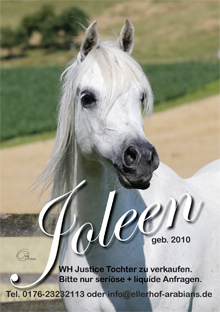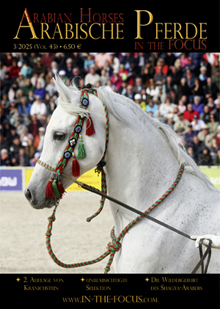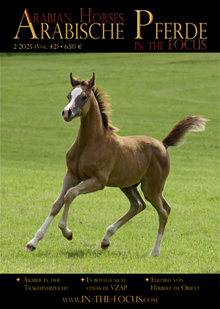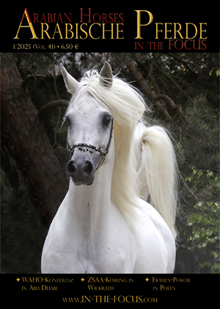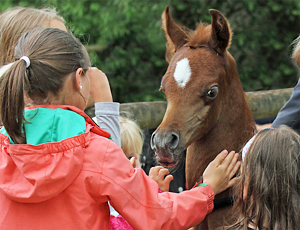
Almost every day we are bombarded with horror pictures and news that show tormented animals – also in the horse world, and yes, also in the world of the Arabian horse. There are the show horses, who fearfully fix their handler, not to miss the moment when he probably lowers the whip and they get hit once again. There are the endurance horses that break down in the Middle East during the endurance race with broken legs, which is called in the jargon “Catastrophic Injury”. There are the half-starved horses of “Lieschen Müller”, which must be rescued by animal welfare organizations from bad conditions, and there is the surplus colt, which ends up at a dealer, who tries to lure a buyer – mostly a woman, and a young one, too – with the scam “he goes to the butcher tomorrow, if there is no buyer right now!” All these are excesses that deserve to be criticized.
But then there are also the “extremists” who are against any animals in the circus, against animals in zoos, yes, they even want to prohibit animal husbandry completely, because only free animals are happy animals; who hate the “use” of the horse, and for the riding and driving are reprehensible, because any use of the animal is exploitation and slavery.
One could get the impression that today there are only “extremes” – total exploitation for the sake of one’s ego on the one hand, and a complete humanization and misjudgment of the real needs of animals on the other. So let’s take a close look where necessary, but do not humanize the needs of the animals too much. Not freedom is the highest good for an animal, but security, well-being and the satisfaction of its needs – this requires expertise, not imagination.
That this discussion arises in our oversaturated affluent society is symptomatic. But in the past, man and animal have been doing quite well for centuries with taking some way in the middle, they found a symbiosis, a togetherness: Man has offered the animal protection and food, and the animal has helped him with his labor. Well, today we no longer need horses in the field, today they are our leisure time partners. However, if animal husbandry is condemned in a generalized and general way, socially ostracized, where and how should our children be able to learn how to deal with animals? Where and how should they learn to respect anything living – or nature as such? And it is known that the handling of animals is very important for children, they learn to take responsibility and they develop empathy for their fellow creatures.
That’s why responsible animal husbandry is more important than ever, especially in our highly technical world!








